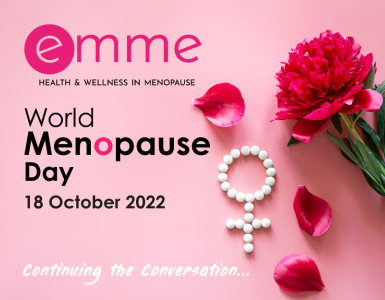In recent years, if you’ve watched the news or scrolled through social media, you’ve probably seen a mention of outdoor, open water swimming. Taking a dip in chilly waters is a trend that keeps on rising and advocates say that the benefits (to both our physical and mental health) far outweigh the initial discomfort of submerging ourselves in cold water.
Now, according to 45 year old Lisa Monger, it could be the answer to dealing with the symptoms of the perimenopause and the menopause
Lisa struggled for many years with debilitating endometriosis, and was put into a chemically-induced menopause to help her manage her symptoms. Soon after, she began experiencing symptoms of the menopause including sleep problems, a low mood, hot flushes and extreme brain fog.
As a health and wellbeing coach, her menopause symptoms were getting in the way of her ability to do her job. Then she discovered open water swimming in the sea at Leigh-on-Sea in Essex and it’s changed things around.
In 2020, Lisa swam her way through the winter in the cold Essex waters and told Jo Gifford of The Outdoor Swimming Society that it was lifechanging
“I experienced this amazing epiphany that massively lifted my mood. If I was stressed, open water swimming got rid of it. If I was worried or anxious, the sea reset the bubble in my inner spirit level. Now, I can go into the sea feeling completely out of kilter, and it just resets and rebalances me.”
Lisa isn’t alone, as Jo, also 45 and an outdoor swimmer, says, “Open water swimming in my local rivers and lakes have provided me with the most incredible relief for bone aches, brain fog and mood swings. In the myriad open water communities online (and off), open water and it’s benefits for the menopause are widely shared in conversation”.
Many more women than men take up open water swimming, and now research is highlighting its benefits for managingmenopausal symptoms
The British Menopause Society says that 75% of menopausal women experience symptoms, which last on average, seven years. 1 in 3 experience them for years longer.
As well as the symptoms experienced by Lisa, common menopausal symptoms include mood swings, anxiety, a low libido, dry vagina, weight gain, joint stiffness, aches and pains, an increased risk of developing weak bones and osteoporosis and a reduction in muscle mass.
Taking up cold water, outdoor swimming can help women in their middle years deal with their physical and emotional symptoms. In 2018, a study in the respected journal, the BMJ, concluded that open water swimming is a recognised treatment for major depressive disorder – so it can also be helpful for mood swings and a low mood. In 2020 a group of Cambridge University researchers found that those who swim in cold water regularly have a higher level of a protein called RBM3. This protein protects against the death of brain cells, that’s commonly seen in menopausal women as their levels of oestrogen naturally decline.
My Menopause Transformation doctor, Dr Wendy Sweet, says, “The real benefits from swimming when we are in menopause and post-menopause are not only to do with our muscles and joints, but all to do with our blood pressure and lymphatic system. Swimming decreases the vascular stiffness that arrives as we lose oestrogen in menopause.”
To add to this, Professor of Reproductive Science at the Institute for Women’s Health, University College London, Joyce Harper, is currently researching the effect of open water and cold water swimming on the menopause.
She says, “Many women have told me that they feel cold water swimming improves some of their menstrual and menopause symptoms. This includes migraines, anxiety, depression and joint issues. I feel part of it is the cold water swimming but it may also be helped by the friendship of swimming and being in nature. I think they all contribute.”
We’ll see you at the water’s edge!
















